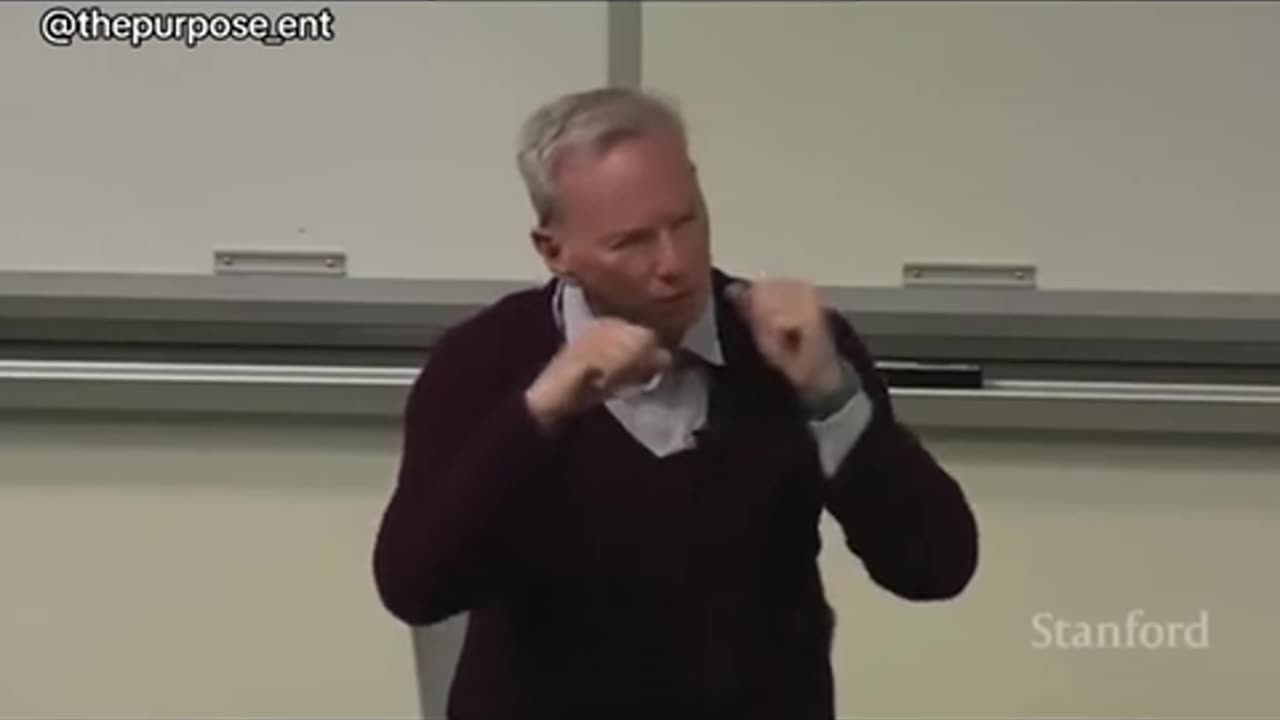Premium Only Content

The Future of AI: Unleashing Programmable Intelligence on a Global Scale
In the rapidly evolving world of artificial intelligence (AI), recent interviews and discussions by key industry figures, such as Eric Schmidt, former CEO of Google, offer us a glimpse into the disruptive technologies on the horizon that could reshape not only industries but also the very fabric of human interaction. The future of AI, as described in Schmidt’s now-removed Stanford interview, paints a striking image: programmable agents, ever-expanding context windows, and the far-reaching implications of text-to-action capabilities. Let’s explore these concepts further and delve into the profound insights this vision offers.
The Three Pillars of AI’s New Era: Context Windows, Agents, and Text-to-Action
At the core of this emerging revolution are three interrelated technologies: large context windows, AI agents, and text-to-action capabilities. Each of these components represents an evolution of AI’s capacity to process information, make autonomous decisions, and perform complex tasks in a more human-like and dynamic manner.
1. Large Context Windows: A Quantum Leap in Memory and Understanding
The ability of AI models to retain information over long periods is one of the most significant limitations in current systems. Schmidt highlights a critical breakthrough: the expansion of context windows. This refers to the length of time and amount of information an AI can remember and process simultaneously, much like human short-term memory. However, with AI, this capacity is growing exponentially.
Imagine feeding an AI the contents of 20 books and asking it to summarize their collective meaning. Previously, the system would lose crucial data in the middle of its processing. Now, with longer context windows, the AI can retain a holistic view and produce more coherent, insightful responses. This parallels the way our brains work, selectively remembering important details while synthesizing information into patterns.
The ramifications of this are monumental. AI will not only serve as a repository of vast knowledge but will also become a powerful tool for real-time decision-making across industries, from medicine to finance, integrating years of research and experience in moments.
2. AI Agents: Self-Learning and Autonomous Problem Solvers
Next, Schmidt discusses AI agents, which represent a leap forward in AI’s ability to act independently. These agents aren’t just static models; they are dynamic learners capable of discovering principles, running experiments, testing hypotheses, and feeding results back into their learning processes. In fields such as chemistry and biology, this ability to autonomously conduct experiments and refine knowledge could accelerate discoveries, potentially even in drug development or materials science.
In essence, these agents would perform the role of research assistants, tirelessly working to expand human knowledge. Their capacity for continuous learning could lead to an era where AI is no longer simply a tool, but an active collaborator in the sciences, industry, and beyond.
3. Text-to-Action: The Dawn of True AI Autonomy
Perhaps the most radical advancement is text-to-action, which allows users to give complex commands in natural language, and the AI will execute them autonomously. Schmidt provided the example of recreating TikTok by simply instructing the AI to replicate its functionality. The AI would gather the required data, generate the code, and launch the application within seconds.
This is a profound shift because it eliminates the barriers between human intention and digital execution. In this future, anyone could deploy AI to handle even the most sophisticated programming tasks, bypassing the need for traditional coding skills. This democratization of AI development could lead to massive shifts in innovation, as individuals and small teams gain the ability to compete with large tech firms in creating software, platforms, and applications.
Economic and Geopolitical Consequences: A Global Game Changer
Schmidt’s interview goes beyond technical breakthroughs, also addressing the global geopolitical implications of this AI revolution. Countries such as the United States and China are already vying for dominance in the AI arms race, pouring billions into research and development. Schmidt’s concern about the scarcity of energy resources required to power the next generation of AI systems is crucial. As AI becomes more resource-intensive, the race for control over energy sources, such as Canada’s hydropower, will become critical.
Furthermore, the ability of these AI systems to produce not only knowledge but actionable results could radically transform industries. For example, Schmidt touched on the integration of AI into robotic warfare, where cheap drones powered by AI could neutralize expensive military equipment, shifting the balance of power in future conflicts.
The Ethical Dilemmas of an AI-Driven Future
Despite the immense possibilities AI offers, it also raises profound ethical questions. Schmidt acknowledged the challenge of misinformation during elections and other high-stakes events. As AI becomes better at producing persuasive content, including deep fakes and fabricated narratives, the potential for manipulating public opinion grows exponentially. This emphasizes the importance of critical thinking in the population and poses a pressing challenge for governments and companies to address the dangers of unchecked AI.
In the hands of corporations and governments, AI’s power could either become a tool for global cooperation or a force for totalitarian control, depending on how it’s wielded. Schmidt’s call for adversarial AI companies—designed to break and test the limitations of AI systems—hints at a future where constant vigilance is required to ensure that AI works for the benefit of society and not its detriment.
Conclusion: A World of Infinite Possibilities
As we stand on the brink of this AI-driven revolution, we are entering a world where the boundaries between human creativity and machine intelligence blur. The convergence of long-context windows, autonomous agents, and text-to-action capabilities promises a future of unprecedented innovation, but it also demands a rethinking of ethical frameworks, resource allocation, and global governance.
Eric Schmidt’s insights offer a sobering glimpse into the transformative power of AI and its potential to reshape industries, geopolitics, and human society. As these technologies evolve, it’s imperative that we remain critical, informed, and engaged in discussions about how best to harness them for the collective good.
The future is closer than we think, and we must prepare to navigate its complexities with wisdom and foresight.
-
 7:28
7:28
FragmentsOfTruth
20 hours agoAre We Just Batteries? The Gnostic Horror of Human Existence
1123 -
 DVR
DVR
The White House
2 hours agoPresident Trump Hosts First Cabinet Meeting, Feb. 26, 2025”
14.9K8 -
 58:16
58:16
The Dan Bongino Show
3 hours agoShake-Up In The White House Press Room (Ep. 2431) - 02/26/2025
638K768 -
 1:00:00
1:00:00
The Rubin Report
2 hours agoDem Looks Visibly Angry as Stephen A. Smith Points Out Failures to His Face
40.1K19 -
 LIVE
LIVE
Benny Johnson
2 hours ago🚨 Trump's First White House Cabinet Meeting LIVE Right Now | Massive News Breaking
10,491 watching -
 2:05:04
2:05:04
Steven Crowder
4 hours agoTrump Keeps Delivering | This Week’s 3 Big Wins Explained
379K165 -
 UPCOMING
UPCOMING
Flyover Conservatives
1 hour agoProphecies | Breakthrough, Zelensky and 2040 - The Prophetic Report with Stacy Whited
1.64K -
 LIVE
LIVE
LFA TV
16 hours agoFLUSHING THE TURDS! | LIVE FROM AMERICA 2.26.25 11AM
4,510 watching -
 1:07:54
1:07:54
Timcast
3 hours agoTulsi FIRED 100+ Deep State PERVS After Fed Kink Chat EXPOSED, Trump CLEANS HOUSE | Timcast LIVE
152K37 -
 LIVE
LIVE
Bannons War Room
8 days agoWarRoom Live
8,600 watching